The NFL's best and worst offensive arsenals: Barnwell's 32-1 ranking - 36 minutes read
When I was compiling my rankings of each NFL team's offensive weaponry last year, the Chiefs came out at No. 1. I was a little surprised. I ran through the rosters again. The Chiefs were still tops. I ran with it, and, well, things went OK. Patrick Mahomes won league MVP in his first season as a starter, and while Mahomes is unquestionably an incredible quarterback, it didn't hurt to be surrounded by the likes of Travis Kelce, Sammy Watkins and Tyreek Hill.
Now, it feels like a mistake as I mention that the Chiefs aren't atop these rankings for the second consecutive season. There's no clear-cut leader for the best set of weapons in football, but instead probably four or five teams that could easily be considered No. 1 without much of an argument. By a different set of rules, you could very easily justify picking the Chiefs or another team. Here's what I went for in creating my list:
These rankings are attempting to consider a team's skill-position talent without including the impact of the quarterback, offensive line or scheme. This is extremely important. If you're getting angry because these rankings don't include the impact of Tyron Smith, Tom Brady, or Matt Nagy, you're wasting your time. This isn't a list of offenses.
These rankings don't include contract value. I'll mention a contract here and there, but if a team has a good player on a bad deal, the money doesn't matter for the purposes of this piece.
I'm solely considering how these players will perform in 2019. I'm looking at typical aging curves and injury histories to estimate how a player will perform in the upcoming season, but I'm not focused on anything after 2019. I'm also factoring in suspensions or likely suspensions, which cap the value of players like Hill and Kareem Hunt.
The arsenals are weighted more toward receivers. The NFL's 20 largest active multiyear deals for wide receivers pay those players an average of $14.2 million per season. That same figure comes in at $6.6 million for tight ends and $6.8 million for running backs. The league clearly values wide receivers as more important than players at the other skill positions, so my rankings follow suit.
Top-level talent wins out over depth. To try to sort between the various teams, I generally focused on each team's top six options across running back, wide receiver and tight end, as those are the guys most likely to see the field. I gave a bit of extra credit for truly transcendent weapons like Julio Jones and DeAndre Hopkins, who manage to shoulder enormous workloads while playing at a high level. When there were relatively similar scores, I gave the edge to the team with more depth, which helped the likes of the Eagles and Patriots move up the board.
Finally -- and this is also important -- I didn't mention everyone. Just because a player isn't discussed in the blurb doesn't mean he wasn't considered as part of the analysis. In some cases, I only briefly touch on star players, if only because I don't need to tell you how good Michael Thomas or Ezekiel Elliott are.
The Jets ranked last when I did this exercise in 2017 and stuck around in last for 2018. The good news: Signing Le'Veon Bell to a massive deal has propelled the Jets out of last place in the weapons rankings! It remains to be seen whether it'll do the same in the real standings, but for now, let's start with the new bottom team:
Jump to a team:
BUF | MIA | NE | NYJ | BAL | CIN | CLE | PIT
HOU | IND | JAX | TEN | DEN | KC | LAC | OAK
DAL | NYG | PHI | WSH | CHI | DET | GB | MIN
ATL | CAR | NO | TB | ARI | LAR | SF | SEA

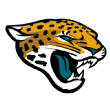
2018 rank: No. 25 | 2017: No. 13
Nick Foles might have won a Super Bowl in Philadelphia, but he'll have way less help on his new team. The Jags' most prominent weapon is running back Leonard Fournette, who hasn't been healthy or productive across his first two pro seasons. Just 35.9% of his carries have improved Jacksonville's chances of scoring by ESPN's Expected Points model, which ranks 34th among 46 backs with 200 carries or more over the last two years. This is a make-or-break year for the former No. 4 overall pick.
The Jaguars are young at receiver, and there's still reason to hope that the likes of Dede Westbrook, Keelan Cole and DJ Chark will get better with improved quarterback play, but the No. 1 option here -- nominally Westbrook, Chiefs import Chris Conley or the returning Marqise Lee, who missed all of 2018 after an ACL tear -- might be as low as fifth on some other depth charts around the league. There's also little at tight end, where Geoff Swaim and rookie third-rounder Josh Oliver will compete. Foles will miss Zach Ertz & Co.
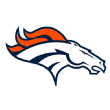
2018 rank: No. 22 | 2017: No. 23
Injuries push the Broncos down the pecking order here, as Emmanuel Sanders is coming off a torn Achilles, while breakout running back Phillip Lindsay is recovering from a serious wrist injury. Both will be back, but Sanders is 32 and is the only veteran of note in Joe Flacco's receiving corps. Flacco will need to find a connection with second-year wideouts Courtland Sutton and DaeSean Hamilton.
Like Foles, Flacco has a history of going for his tight ends; he has a far more promising option than the Jags' pickings in first-round pick Noah Fant, but the track record of first-round tight ends as rookies might temper enthusiasm. Just four rookie tight ends in league history -- Charle Young, Keith Jackson, Jeremy Shockey and Evan Engram -- have topped 700 receiving yards. Fant's impact is more likely to come in 2020 and beyond.
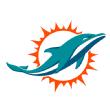
2018 rank: No. 31 | 2017: No. 3
With the end of the Adam Gase era and its running back-go-round, the Dolphins mostly stayed put with their weapons this offseason, only swapping out Danny Amendola and Frank Gore for tight end Dwayne Allen.
Kenny Stills has proven to be an effective second wideout and deep threat, but everything afterward is mostly projection. DeVante Parker and Albert Wilson each had one big game last season, but the two have combined for one 16-game season in nine tries. Mike Gesicki (22 catches, no touchdowns) was a reminder of what usually happens to rookie tight ends. The old staff alternated Gore with Kenyan Drake, who remained efficient and effective in a limited role, but can he handle more? In a rebuilding year, the Dolphins need to figure out their future core.
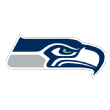
2018 rank: No. 28 | 2017: No. 16
The Seahawks got a breakout year from Tyler Lockett and continued effectiveness from 2017 seventh-rounder Chris Carson, but Doug Baldwin struggled to stay healthy before retiring, while first-round pick Rashaad Penny was little more than a change-of-pace behind Carson and the departed Mike Davis.
The depth chart behind Lockett at receiver is scary thin, with the likes of David Moore, Amara Darboh, Jaron Brown and second-round size/speed monster DK Metcalf at wideout, and Ed Dickson, Nick Vannett and post-patella tear Will Dissly at tight end. It's telling that the Seahawks gave Brandon Marshall meaningful snaps last September; it's scary that they're actually worse at the position without replacing Baldwin.

2018 rank: No. 18 | 2017: No. 19
The investments Washington has made at wide receiver haven't worked out. Former Seahawks wideout Paul Richardson, signed to a five-year, $40 million deal, wasn't healthy in Seattle and caught just 20 passes in seven games last season. Former first-rounder Josh Doctson hasn't developed, and Washington just declined his fifth-year option. Jamison Crowder left for the Jets and is in line to be replaced by Mr. Irrelevant Trey Quinn. Jay Gruden & Co. drafted Terry McLaurin in the third round, but is there any reason to think Washington is going to start developing wideouts effectively? This is likely the league's worst group of starting wide receivers.
Washington is better at other positions, but injury concerns perennially loom over Jordan Reed and now 34-year-old running back Adrian Peterson. Derrius Guice, a second-round pick in 2018, is coming off a torn ACL, while Chris Thompson was banged up all season and saw his efficiency metrics crater after returning from a broken leg. An impressive debut season from Guice would give Washington a building block for 2020.
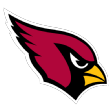
2018 rank: No. 20 | 2017: No. 9
You certainly can't accuse the Cardinals of standing pat at wide receiver. Kliff Kingsbury is going to use plenty of three- and four-wideout sets in his Air Raid attack, and the Cards added to starters Larry Fitzgerald and Christian Kirk by drafting Andy Isabella, Hakeem Butler and KeeSean Johnson. Former Bears first-round pick Kevin White's here as a flier, too. The moves to sign tight ends Charles Clay and Maxx Williams make less sense given how infrequently this team is likely to use multiple tight ends for anything beyond special-teams plays.
Strangely, this is probably the first year in over a decade in which the most important weapon for the Cardinals isn't the guy wearing No. 11. Fitzgerald is going to be a Hall of Famer, but as he turns 36 and enters what is likely to be his final season, the Arizona offense will need to depend more heavily upon Kirk and David Johnson, who never seemed to get going last season. This offense will move fast and should generate a ton of possessions, which will bump up everyone's numbers, but if Johnson doesn't piece together an impressive year, it'll make the 27-year-old's breakout campaign from 2016 look more like an aberration than an indication of what was to come.
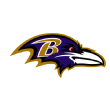
2018 rank: No. 24 | 2017: No. 28
The Cardinals and Ravens are about as philosophically opposed as any two offenses could possibly be, and that diversity should make for a more entertaining NFL. As Baltimore turns its offense over to quarterback Lamar Jackson and offensive coordinator Greg Roman on a permanent basis, the Ravens will mostly be relying on young talent around their second-year quarterback. The vast majority of Jackson's targets are likely to go to players on rookie deals, including first-round picks Hayden Hurst and Marquise Brown, both of whom have injury flags. Even players like Willie Snead and Nick Boyle are only 26.
The key exception is Mark Ingram, who turns 30 in December and is likely to be Baltimore's featured back. Ingram remained effective after returning from a PED suspension last season, and while the Saints set up their running game with a dominant passing attack, the likes of Chris Ivory have had success after leaving Drew Brees' grasp. Ingram should be productive in Year 1 of his three-year, $15 million deal.
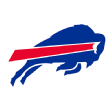
2018 rank: No. 29 | 2017: No. 24
Some teams try to target one big weapon for their young quarterback. The Bills, on the other hand, went to Costco and bought in bulk this offseason. In addition to bringing in four new starters along their offensive line (who aren't considered here), the Bills signed two starting wideouts, brought in three tight ends and added three running backs to compete with LeSean McCoy, who had his worst season as a pro in 2018.
The Bills are unquestionably deep and likely better at the skill positions than they were a year ago, but there might not be a needle-mover in the bunch unless Devin Singletary or Dawson Knox breaks out as a rookie. John Brown was promising in the first half of 2018 with the Ravens, and Cole Beasley and Tyler Kroft are upgrades on what was previously replacement-level talent, but the most important wideout on this team likely is undrafted free agent Robert Foster, who seemed to find a rapport with Josh Allen in December. If Foster's back-to-back 100-yard games turn out to be a flash in the pan, the Bills will likely be back in the market for a No. 1 wideout this time next year.
For all the additions, this group probably still needs impressive years from McCoy and Foster to take a step forward.
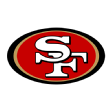
2018 rank: No. 26 | 2017: No. 31
Another team whose strength comes in numbers, the 49ers have as many as four viable running backs, a fullback they use in the passing game, three second- and third-round picks at wide receiver, and an Olympic-caliber sprinter. Counting on any of them to stay healthy and/or effective for a full season in 2019 seems dangerous. Marquise Goodwin posted a 613-yard half-season with Jimmy Garoppolo during the second half of 2017 before both Garoppolo, who tore his ACL in September, and Goodwin struggled through lost 2018 campaigns. He's the guy the 49ers need most out of the bunch.
The biggest difference between the 49ers and the Bills, though, is that the 49ers do have one weapon coming off a star-caliber season in tight end George Kittle. The third-year Iowa product probably won't have as many big plays in 2019 -- he was the first tight end in league history to rack up two 80-plus-yard touchdowns in a season -- but the 25-year-old should be in line for another 120-plus-target campaign.
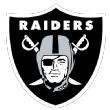
2018 rank: No. 19 | 2017: No. 8
Moving down four spots after adding Antonio Brown and Tyrell Williams isn't as controversial as it seems, in part because last year's Raiders looked better on paper than they actually were on the field. This time last year, the Raiders still had Amari Cooper and Jared Cook and were extremely optimistic about Jordy Nelson and Marshawn Lynch.
Oakland is certainly better at wideout, and Josh Jacobs offers more upside than Lynch, but Williams is likely to take a hit after moving away from Philip Rivers, and the team will replace Cook with the likes of Derek Carrier and Darren Waller, which is a huge drop-off.
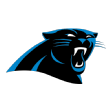
2018 rank: No. 17 | 2017: No. 12
Christian McCaffrey's 2018 was a lesson in touchdown regression. The league's regular backs scored about once every 26 touches last season. Over his first six games, McCaffrey scored just once on 118 touches. I won't do the math, but this would have been a good time to trade for him in fantasy. Over the final 10 games, he scored 12 times on 208 touches, or once every 17.3 touches. He actually went past the mean, but in the long run, McCaffrey's 2018 season saw him rack up 13 rushing and receiving touchdowns on 326 touches, for one in every 25 opportunities.
McCaffrey had to carry the offense for stretches with Cam Newton's shoulder ailing, but DJ Moore showed enough in his rookie season to hint at a possible leap into the top 20 in Year 2. Curtis Samuel also exhibited big-play ability amid injury concerns, but it's probably about time to let go of the past with Greg Olsen, who has now missed 16 games over the last two years and turned 34 in March. Ian Thomas' end to the season -- 246 yards and two scores over the final five weeks -- makes him a quietly promising target at tight end.
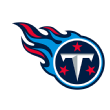
2018 rank: No. 14 | 2017: No. 15
No team feels like it is in more of a holding pattern than Tennessee. Though that's mostly about Marcus Mariota, it extends to the Titans' weapons, too. Corey Davis improved in his first full season as a starter and showed flashes of looking like a No. 1 wideout, but the former No. 5 overall pick averaged 45 receiving yards per game over the final seven weeks of the season. Derrick Henry was out of the offense for stretches, but then racked up more rushing yards over the final four games of the year (585) than he had over the prior 12 (474). These are the two key ball carrier building blocks of the team, and it's still too early to say what they're going to be.
What do we know? Adam Humphries is an upgrade in the slot. The two veterans who might have pushed this team over the top, though, aren't looking as imposing as they did a year ago. Delanie Walker, now 35, missed virtually all of 2018 with a brutal ankle injury and still isn't 100 percent; the Titans are likely going to lean more on Jonnu Smith in 2019. Dion Lewis stayed healthy, meanwhile, but the former Patriots dynamo was extremely inefficient as both a runner and receiver, and the track record of Patriots backs after leaving New England isn't inspiring. Anything significant out of either player in 2019 would be a bonus.
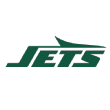
2018 rank: No. 32 | 2017: No. 32
In handing out that 32nd-placed ranking a year ago, I wrote that the Jets would be investing in skill-position talent during the 2019 offseason. It was always easy to link them with Le'Veon Bell, and when a market didn't really form for the Steelers star, the two came together. Bell is a massive upgrade on Isaiah Crowell, whose gaudy 4.8 yards per carry mark belied the league's second-worst Success Rate. Bell's efficiency as a runner and ability as a receiver should keep Sam Darnold out of third-and-long, which is a victory in itself.
The biggest concern with Bell has always been availability, given that he missed two Steelers playoff runs with injuries and has already been suspended twice. He's not the only one. Quincy Enunwa has missed 22 games over the last two seasons with neck and ankle injuries. Robby Anderson was out for two games and slowed for others in 2018 with his own ankle ailment. Jamison Crowder missed seven games a year ago with, you'll never guess, an ankle injury. Bilal Powell, competing as a change-of-pace back, is coming off of a serious neck injury. There's plenty of promise here, but it's tough to imagine everyone staying on the field through December.
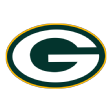
2018 rank: No. 23 | 2017: No. 11
While general manager Brian Gutekunst invested heavily to try to rebuild Green Bay's pass defense and add help along the offensive line, he curiously left the skill-position talent untouched outside of third-round tight end Jace Sternberger and sixth-round running back Dexter Williams. In part, that might owe to Gutekunst's big addition from a year ago struggling; Jimmy Graham's touchdown rate regressed way past the mean, with the former Saints and Seahawks standout going from a 57-catch, 10-touchdown season in 2017 to an anonymous 55-catch, two-score season a year ago.
Davante Adams had his best full season as a pro, of course, but the Packers will have to hope for significant second-year growth from Equanimeous St. Brown and Marquez Valdes-Scantling, who will compete with Geronimo Allison for starting work. Consider where these non-Adams wideouts would fall in the depth chart for most top NFC competitors. The clearest path to a rise up these charts in 2019 would be a breakout full season from tailback Aaron Jones, who missed the end of the year with a sprained MCL.
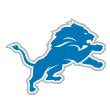
2018 rank: No. 21 | 2017: No. 22
Few teams can boast a more promising top three on rookie deals than the Lions, who have running back Kerryon Johnson, wide receiver Kenny Golladay and first-round pick T.J. Hockenson taking over at tight end. There are also caveats; Johnson's impressive rookie season was really an impressive half-season before going down with a season-ending knee injury, while the struggles of Eric Ebron in a Lions uniform are a reminder of how even highly drafted tight ends can be a dicey proposition.
The upside is certainly there, but what pushes the Lions toward league-average in 2019 is their depth. Marvin Jones missed seven games a year ago, but he has averaged nearly 17 yards per reception in Detroit. Jesse James was a viable starting tight end in Pittsburgh and should see plenty of snaps out of two tight end sets with Hockenson under new offensive coordinator Darrell Bevell. C.J. Anderson looked, well, like Todd Gurley in Los Angeles. Danny Amendola even had a relatively healthy season in Miami.
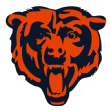
2018 rank: No. 9 | 2017: No. 26
Matt Nagy's first year in charge with the Bears was an obvious success, but that was heavily weighted toward the defense; the Bears' offense finished 20th in DVOA, below the Giants, Broncos and Bengals, among others. Some of that has to do with inconsistent quarterback play from Mitchell Trubisky, but none of the weapons imported by general manager Ryan Pace during the offseason had outstanding individual seasons. Allen Robinson, making $14 million per year, averaged 58 receiving yards per game and continued to struggle with staying healthy. It's fair to wonder whether his magnificent 2015 season was an outlier and not a harbinger. Trey Burton, with the third-largest active deal for a tight end in the league, posted a more promising 54-569-6 line in his debut season as a starter, finishing sixth among tight ends in fantasy points.
The most exciting weapon on this team continues to be Tarik Cohen, but Nagy needs to do a better job of keeping the back in games from week to week. After a game with 186 yards from scrimmage and a passing touchdown against the Giants in Week 12, Cohen had just 222 yards from scrimmage over the final five weeks, including 27 on five touches in the playoff loss to the Eagles. There's plenty of upside here with the aforementioned trio, second-year wideout Anthony Miller and rookie back David Montgomery replacing Jordan Howard, but if it's not Robinson, is there someone to take over when the Bears really need a big play on offense?
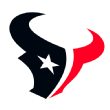
2018 rank: No. 12 | 2017: No. 18
Here's another situation where health affects the ranking. DeAndre Hopkins is my pick as the best wide receiver in football; at worst, he's somewhere in the top five. Will Fuller has produced a 45-782-11 line in 11 starts with Deshaun Watson at quarterback, but he has now undergone two knee surgeries in two years and has missed 17 games in three years.
Keke Coutee was only healthy enough to play seven games last season, but he averaged nearly 57 receiving yards per game amid hamstring issues. The Texans only had their trio on the field for 85 dropbacks last season; if Hopkins, Fuller and Coutee are on the field regularly, they could very well make up for uninspiring options at running back and tight end.
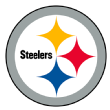
2018 rank: No. 4 | 2017: No. 2
In a way, it's a credit to the Steelers that they could lose a top-five running back (Le'Veon Bell) and wide receiver (Antonio Brown) in the same offseason and still have something close to a league-average set of weapons. That's a product of developing a pair of young stars in James Conner and JuJu Smith-Schuster, both of whom should assume significant workloads as the primary back and top wideout, respectively, in this offense. Jaylen Samuels also flashed as a useful backup behind Conner last season.
No team in the league has a bigger drop-off from the top two to the rest of their weapons. Vance McDonald had his best season as a pro by a comfortable margin in 2018, but the former 49ers draftee has missed nearly a quarter of his pro career with injuries and hasn't played a full 16-game slate. Donte Moncrief is still only 25, but he has yet to top 800 receiving yards in a season. The best bets for a breakout are 2018 second-rounder James Washington and 2019 third-rounder Diontae Johnson. Pittsburgh's track record in developing Brown, Smith-Schuster, Emmanuel Sanders, Mike Wallace and Martavis Bryant out of the middle rounds of the draft over the past decade suggests that one of the two should turn into a valuable contributor, even as early as this season.
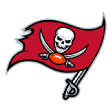
2018 rank: No. 15 | 2017: No. 10
How high can you make it with the league's worst running back corps? Nobody seems to be very excited about a Bucs backfield paced by Peyton Barber, although it's too early to give up on Ronald Jones after Tampa took him in the second round a year ago. With a league-average running back room, the Bucs would be in the top five of these rankings.
They've made it to No. 14 because Tampa's receiving corps could be devastating. Mike Evans posted his best season in 2018, averaging more than 11 yards per target and playing all 16 games for the second time in five tries. Chris Godwin added more volume at the expense of the now-departed DeSean Jackson, although he fumbled four times on 59 touches. The Colts are the only team whose one-two punch at tight end currently tops Tampa's combo of O.J. Howard and Cameron Brate. There's not much in the cupboard beyond those four unless Breshad Perriman's minibreakout from Cleveland sticks or Jones delivers on the promise he showed in school.
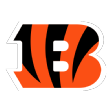
2018 rank: No. 16 | 2017: No. 6
The emergence of Tyler Boyd as an above-average second wideout behind A.J. Green helps push the Bengals up, even as it seems less likely we'll see much from former first-round picks Tyler Eifert and John Ross. Boyd, who was a healthy scratch at times in 2017, was on pace for a 98-1,240-10 season before Andy Dalton got hurt.
Joe Mixon added nearly 1.5 yards per carry to his rushing average from 2017 and didn't fumble once across 280 touches. Gio Bernard has proven to be a useful change-of-pace back, although 2018 wasn't his best season. C.J. Uzomah emerged as a viable tight end behind Eifert and Tyler Kroft. If the Bengals ever could get anything consistent out of Eifert or Ross, this would be a top-10 unit.
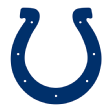
2018 rank: No. 27 | 2017: No. 25
Great athletes always have some shot at turning their potential into production, so while it seemed like Eric Ebron's chance had come and gone after four frustrating years in Detroit, the former top-10 draft pick broke out with a 750-yard, 14-touchdown season in Indianapolis. Ebron and Jack Doyle are likely the top tight end duo in the league on paper, and Andrew Luck has exhibited some affinity for targeting tight ends. Though Ebron probably won't post a Gronk-esque line again in 2019, the Colts are likely to get more than 245 yards and two scores out of Doyle, who missed 10 games with hip and kidney issues.
Indy's three-headed halfback hydra was effective on the whole a year ago, even if no one posted eye-popping numbers. The trio of Marlon Mack, Nyheim Hines and Jordan Wilkins combined to carry the ball 340 times for 1,558 yards and 12 scores, then chipped in with 96 catches for 613 yards and three touchdowns. The one thing Indy seems to be missing is a promising second wideout behind T.Y. Hilton, but if Devin Funchess returns to the form he showed in 2017 or second-round pick Parris Campbell impresses as a rookie, the Colts could rise even further.
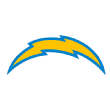
2018 rank: No. 10 | 2017: No. 7
Los Angeles didn't replace Tyrell Williams after the deep threat left for the Raiders in free agency, and the onus for replacing him will fall upon their two rookie-deal weapons. Mike Williams' touchdown rate (11 scores on 50 touches) is unsustainable on its face, but if we assume he adds an extra 30 targets to the 66 he received a year ago, the former No. 7 overall pick could approach double-digit scores again. Anything the Chargers get out of starting tight end Hunter Henry will be an improvement, given that the popular breakout pick last offseason missed all of 2018 with a torn ACL. Philip Rivers could also direct more attention toward Keenan Allen, who increased his efficiency while seeing 23 fewer targets in 2018.
The names in the Chargers' arsenal might be bigger than their actual production. Henry, for one, still hasn't topped 600 receiving yards as a pro. I wrote about the gap between Melvin Gordon's fantasy production and his actual on-field value to the Chargers back in February, and while Gordon had his best season in 2018, the combination of injuries and middling inefficiency may overshadow his versatility as a receiver. If he can stay healthy and keep up his 2018 level of play for another season, I'll be on board.
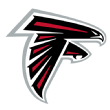
2018 rank: No. 3 | 2017: No. 4
If I was making a list of the scariest wideout sets in football, the Falcons would rank in the top five for a third consecutive campaign. Calvin Ridley slowed down after a hot start, but he became just the fifth wide receiver over the past 40 seasons to top 800 yards and 10 touchdowns in his rookie campaign. The other guys in that group are Odell Beckham Jr., Mike Evans, Mike Williams (Tampa edition) and Randy Moss. Mohamed Sanu, overqualified for third wideout work, racked up 838 receiving yards as what amounted to Atlanta's third target. You know Julio Jones, and his bizarre touchdown-less streak dissipated with eight over his final nine games. Jones has also only missed two games over the past four seasons.
The Falcons fall, though, because I'm less enthused about what they have elsewhere. Austin Hooper caught an 88-yard touchdown in Week 1 of 2017 and hasn't topped 80 yards in any of the ensuing 31 games; he has averaged 34 receiving yards per game and scores once a month. Devonta Freeman signed a big deal after an impressive pair of seasons under running back whisperer Kyle Shanahan, but the past two years without Shanahan have been underwhelming. Freeman saw his average drop to 4.0 yards per carry and he fumbled four times on 232 touches in 2017, then missed 14 games in 2018 with various injuries. It's possible that an improved offensive line and the departure of unloved coordinator Steve Sarkisian help Freeman return to form, but when you consider that Atlanta lost Tevin Coleman this offseason, running back isn't projected as a plus for the Falcons until Freeman rebounds.
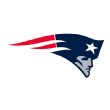
2018 rank: No. 8 | 2017: No. 1
No team has suffered a bigger drop-off at any one spot than the Patriots, who go from arguably the most impactful tight end in NFL history with Rob Gronkowski to Benjamin Watson. The veteran Watson is already suspended for the first four games of the season, which means the Week 1 starter at tight end might very well be Matt LaCosse. With Josh Gordon likely unavailable and Chris Hogan, Cordarrelle Patterson and Dwayne Allen all gone, more than 52% of the passing yards Tom Brady posted a year ago went to players who are no longer on the roster.
As good as Gronk was, does anyone really think the Patriots will be a mess on offense this season? We know they'll adjust. They used a first-round pick on N'Keal Harry and signed Dontrelle Inman and Demaryius Thomas, though the latter might not be healthy enough to play as he recovers from a torn Achilles. No team in the league is deeper at running back, where the Patriots can run out some combination of Sony Michel, James White, Rex Burkhead and third-round pick Damien Harris from snap to snap. It won't look the same without Gronk, but let's be honest: This offense is going to work just fine.

2018 rank: No. 2 | 2017: No. 20
It's strangely impressive that the Giants managed to be so uninspiring on offense a year ago with one of the best arsenals in football. Obviously, trading away Odell Beckham Jr. is going to make any team's weaponry worse, but the Giants at least have a short-term solution in Golden Tate, who should help soften the blow of willingly trading away a franchise wideout for ... reasons. Both Tate and Sterling Shepard rank in the top eight for receiving yards out of the slot over the past three years, so Pat Shurmur will need to find a way to get both of his starting wideouts time on the inside.
The Giants are the first team on this list to rate out as above-average at running back, wide receiver and tight end, though other teams (notably the Packers and Steelers) come close. Evan Engram struggled to stay healthy last season but averaged 9.0 yards per target, which was just ahead of guys like Travis Kelce and Jared Cook. And though Saquon Barkley's rookie season was less impressive under a microscope, it's fair to say that the offense was almost entirely dependent upon Barkley for stretches in 2018. With a better offensive line, Barkley could be the most productive back in football in 2019.
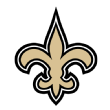
2018 rank: No. 11 | 2017: No. 14
After adding Jared Cook at tight end, the Saints can boast seriously dangerous weapons for Drew Brees at all three skill-position spots for the first time since the Jimmy Graham days. In Alvin Kamara and Michael Thomas, the Saints have two of the most devastating players in the league at their respective positions. Including the postseason, Thomas was just the 10th player in NFL history to post three 170-yard games in a single season, including a 211-yard salvo against the Rams in midseason.
Cook is not quite on their level, and after that big three, you can certainly pick holes in what the Saints bring to the table. Ted Ginn's late-career renaissance has been fun to see, but the 34-year-old averaged just under 42 yards per game when healthy a year ago. Tre'Quan Smith flashed as a rookie, but it's not as if he had a Calvin Ridley-sized debut campaign, and guys like Keith Kirkwood and Cameron Meredith aren't likely to move the needle. Latavius Murray is also likely a step down from Mark Ingram as New Orleans' power back, given the 29-year-old's middling production in Oakland and Minnesota. This group will go as far as Kamara and Thomas can take it.
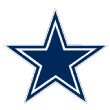
2018 rank: No. 30 | 2017: No. 5
Talk about a swing! The Cowboys headed into 2018 with Ezekiel Elliott and a laughably bad receiving corps, but one year later, there's a lot to like for Dak Prescott. The trade for Amari Cooper revitalized Dallas's passing game; Prescott posted a 104.6 passer rating with the star wideout on the field and an 86.8 rating with Cooper sidelined or in Oakland. Michael Gallup got better as the year went along, finishing with a 119-yard performance against the Rams during the postseason.
And though Jason Witten might not have much left in the tank at age 37 after returning from a year of broadcasting, Dallas' starting tight ends last season posted a combined line of 38 catches for 345 yards and one touchdown. Even a limited Witten should be a comfortable upgrade in offensive coordinator Kellen Moore's offense.
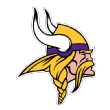
2018 rank: No. 5 | 2017: No. 21
How far can two star wide receivers take you? The Vikings have the best one-two punch in the game with Stefon Diggs and Adam Thielen, and though the eight consecutive 100-yard games Thielen posted to start the 2018 season probably won't pop up again this season, the 28-year-old has topped his receiving yardage total four consecutive times. Mike Zimmer still insists on Minnesota running the football -- a curious emphasis given that the Vikes have these two wideouts and are paying their quarterback $28 million per season -- but don't bet against Thielen making it five in a row.
The Vikings were able to bring back Kyle Rudolph on a restructured deal and drafted Irv Smith Jr., though the Alabama product will likely be a part-time player until Rudolph eventually moves on. Rudolph's injury concerns have faded, as the Notre Dame product hasn't missed a game in four years. We can't say the same about Dalvin Cook, who has missed 17 games in two NFL seasons. If Cook can't stay healthy, the Vikings would have to turn to rookie third-round pick Alexander Mattison as their starting back.
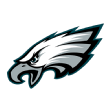
2018 rank: No. 7 | 2017: No. 17
I don't think anybody is deeper at the skill positions across the board than Doug Pederson's team. If you took away their best player at each position, you could still roll out a starting five of Miles Sanders, Nelson Agholor, DeSean Jackson, JJ Arcega-Whiteside and Dallas Goedert. You would probably prefer that to the Jags' starters. Down the stretch last season, the Eagles started Josh Adams and then Wendell Smallwood at running back; it's not clear whether either back will make the active roster. No team has this sort of depth.
Outside of Zach Ertz, though, it's fair to wonder whether there's the sort of top-level talent we're seeing from the other teams in this top 10. Alshon Jeffery hasn't been healthy for a full season since 2014, though he did make it through the full 16-game season in 2017 with a torn labrum. Jeffery is unquestionably tough and has been a brutally tough out in the playoffs -- aside from the drop against the Saints -- but he also hasn't hit 850 receiving yards in a season in four years. The running back rotation has plenty of interesting options, but there's no guarantee that Miles Sanders steps in and hits the ground running as a rookie back. The sum adds up to more than the individual parts here.
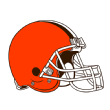
2018 rank: No. 13 | 2017: No. 30
It's hard to believe that we're only two years removed from a Browns receiving corps whose leading weapon was 395 yards of Seth DeValve. No duo is going to be more fun to watch than Odell Beckham Jr. and Jarvis Landry, who should challenge Diggs and Thielen as the league's best wideout pairing. The only blemish here is Beckham's injuries, as the three-time Pro Bowler has played just one 16-game season in five tries and missed 16 games over the past two seasons.
Unlike the Vikings, though, the Browns also boast one of the best running back trios in football with Nick Chubb, Duke Johnson and a half-season of the suspended Kareem Hunt. Counting on Hunt to make a meaningful impact given his abhorrent off-field behavior and the looming suspension seems naive, but the Browns don't need him to dazzle offensively. The weakest point in this chain is tight end David Njoku, but the Miami product showed signs of delivering on his freakish ability a year ago with a 639-yard, four-touchdown season. I don't think Njoku's numbers will leap again in 2019, but that might be because the Browns only get to play with one football.
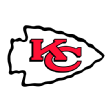
2018 rank: No. 1 | 2017: No. 27
The narrowest of margins separates the Chiefs from the top spot. On paper, though Damien Williams looked fine as Kareem Hunt's replacement in December and January, it's hard to believe that the former Dolphins backup and Carlos Hyde are an upgrade on Hunt and Spencer Ware, who were Kansas City's two leading backs this time last season. Andy Reid should be able to draw up a bunch of receiving yardage for his backs on screens, but that's more a function of Reid and Patrick Mahomes than it is these backs.
There's also the likelihood that the Chiefs start the year without Tyreek Hill, who might be suspended by the NFL after the league completes an investigation into his alleged child abuse. If we assume Hill will be suspended for three games, there's likely going to be a significant drop-off between the star wideout and rookie second-rounder Mecole Hardman. Fellow starting wideout Sammy Watkins is a perennial injury risk, with the former Bills standout missing 18 games over the past four seasons. Travis Kelce is on the short list for best tight end in football, but the chance that the Chiefs will have to replace their starting wideouts for eight to 10 starts with Hardman or Demarcus Robinson is enough to push them to No. 2 here.

2018 rank: No. 6 | 2017: No. 29
Indignant Chiefs fans are likely yelling about Todd Gurley and Cooper Kupp right about now, and indeed, there are reasons to be worried about two of the Rams' stars. Kupp is returning from a torn ACL and should be active for Week 1, but it's impossible to say whether he will be the same guy who was on pace for 1,132 receiving yards and 12 touchdowns before blowing out his knee.
Gurley is a scarier proposition. The reports suggesting he is suffering from arthritis in his knee seem to be accurate, and everything the Rams have done and said suggests that the days of Gurley taking 90-plus percent of the offensive snaps are over. Los Angeles is enthused about third-round pick Darrell Henderson, and ESPN college football guru Bill Connelly raved about Henderson's explosiveness before the draft, but Gurley was the best running back in football when healthy over the past two years. It's tough to imagine the Rams will get that sort of volume and efficiency from a combination of Henderson and an arthritic Gurley in 2019.
With that being said, this isn't a binary problem. Gurley probably isn't going to average nearly 23 touches per game or average five touchdowns per month like he did from 2017-2018, but he could still be a very useful running back in the range of 15-18 touches per week. That's less exciting for fantasy football, but it's probably better for the Rams, especially if Henderson delivers on the preseason hype. There's not much at tight end here, but when you think about just how deep the Rams are at wide receiver with Kupp, Brandin Cooks and Robert Woods, even 85% of the old Gurley is enough to propel the Rams to the top of the weaponry charts.